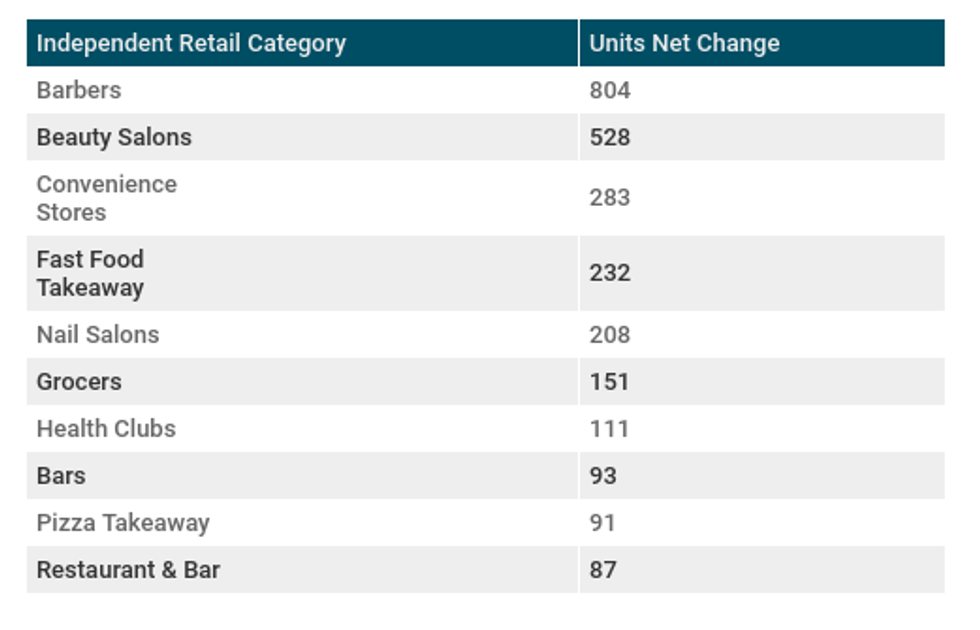Independent retail market has shown its resilience in 2020, with net loss of stores declining from the previous year.
According to a new report released by retail data consultancy Local Data Company, there were 31,405 openings of independent units in 2020, just outweighed by 32,847 closures, resulting in the independent market shrinking by 0.4 per cent (-1,442 units).
Despite the Covid-19 pandemic causing mass closures across the retail and leisure market, the loss in independent units in 2020 was slightly lower than the previous year, with a net change of -1,521 units (-0.5%) in 2019.
Significantly, the loss in 2020 was minimal compared to the chain market which declined by 4.5 per cent, equating to a loss of 9,877 units.
Both independent openings and closures decreased by 11 per cent in 2020, mainly due to extended periods of lockdown that suppressed market activity.
The report notes that pandemic business support schemes by the government were more effective for the independent sector than chains, as evidenced by the decrease in closures.
Independent barber shops continued to open at pace, as has been the case since 2017. New entrants on the top 10 opening list for 2020 were fast food takeaway, grocers, pizza takeaway and restaurants as demand for food delivery and grocery items skyrocketed.

However, the report also shows the fragility of the market, with just 64 per cent of those businesses that opened in 2018 still operational.
The percentage of independent units that were able to survive for the two-year period also varies by region from as low as 54 per cent in the North East, to 72 per cent in the East of England with 84 per cent of independents in the city of Cambridge able to survive the course.
Lucy Stainton, head of retail and strategic partnerships at the Local Data Company, cautioned that we re yet to see the full impact of the pandemic.
“The number of permanent closures recorded was lower than the previous year as a result of government interventions, yet a significant number of dormant businesses are still ‘temporarily closed’ following the first lockdown. It remains to be seen if these will re-open at all once restrictions are lifted,” Stainton said.
“The volume of activity we are seeing across the independent sector could be cause for some optimism however, as an increase in available retail units and more localised shopping habits create opportunities for those looking to open a business. This could mark a first step towards more diverse and resilient high streets across the country.”





